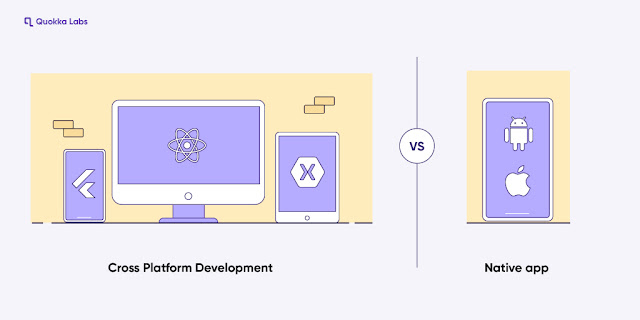Top 7 Benefits of Artificial Intelligence in Education You Can’t Ignore
Artificial Intelligence (AI) is no longer just a buzzword. It’s a real game-changer across industries, and education is one of the biggest beneficiaries. The impact of AI in education is transforming how we teach, learn, and manage classrooms. From personalized learning to automating administrative tasks, AI is helping both educators and students achieve more, faster.
In this blog, we’ll explore the top 7 benefits of artificial intelligence in education, specifically categorized into two groups: benefits for students and benefits for educators. Whether you're an institution, a teacher, or an edtech startup, understanding how artificial intelligence in education is evolving can give you a competitive edge.
Benefits of Artificial Intelligence in Education for Students
1. Personalized Learning Experiences
One of the most significant benefits of artificial intelligence in education for students is personalized learning. Not all students learn the same way. AI tools can assess individual learning styles, strengths, and weaknesses and customize lessons to fit each student's needs.
Think of it like having a dedicated tutor who understands your pace, adapts to your needs, and is available 24/7. AI-driven platforms can recommend specific exercises, videos, or activities to help students grasp complex topics more efficiently.
2. Instant Feedback and Continuous Assessment
With AI, students no longer have to wait days or weeks to get feedback on their tests or assignments. AI-powered grading systems can evaluate multiple-choice questions, short answers, and even essays in real time.
This quick feedback loop helps students learn from their mistakes instantly, reinforcing concepts while they’re still fresh. It also keeps them engaged and motivated to improve continuously.
3. Accessible Learning for All
AI is making learning more inclusive by supporting students with diverse needs. Whether it's a physical disability, a learning difficulty, or a language barrier, AI tools can help bridge the gap:
-
Text-to-speech tools assist students with reading difficulties.
-
Speech-to-text software helps students with hearing impairments.
-
Real-time language translation enables non-native speakers to understand lessons easily.
These tools ensure that education is accessible to everyone, no matter their background or challenges. Artificial intelligence in education is playing a key role in creating equitable learning opportunities.
4. Engaging Learning Through Gamification
AI makes learning fun and engaging by turning lessons into game-like experiences. These AI-powered educational games adapt based on the student’s learning progress and keep them motivated with challenges, rewards, and instant feedback.
Imagine solving math problems in a quest-style adventure or exploring historical events through interactive simulations. These engaging formats help students retain information better while enjoying the learning process.
Benefits of Artificial Intelligence in Education for Educators
5. Smart Content Creation and Curation
Creating quality educational content takes time and effort. AI simplifies this by helping educators develop and update digital content like:
-
Interactive quizzes
-
Bite-sized lessons
-
Flashcards
-
Simulation-based exercises
AI tools can also curate content from the internet, filtering out what’s relevant and aligning it with the curriculum. This allows teachers to focus more on delivery and student engagement rather than content creation. It also opens new opportunities for any mobile app development company working on education apps to integrate dynamic AI-based features.
6. Automating Administrative Work
Administrative tasks like taking attendance, scheduling, grading, and sending notifications can be a burden for teachers. AI systems can automate these tasks, freeing up time for educators to concentrate on teaching and mentoring.
For example:
-
Automated attendance systems use facial recognition.
-
AI grading tools assess standardized tests.
-
Virtual assistants help in scheduling and communication.
This is one of the most practical benefits of artificial intelligence in education—saving time and reducing burnout among educators.
7. Data-Driven Insights for Better Decision Making
AI tools can analyze student data—such as performance, attendance, and engagement—and offer actionable insights. Educators can identify which students need extra help, which teaching methods are most effective, and how to better allocate resources.
These insights support informed decision-making, enabling educators to fine-tune their strategies for better learning outcomes. Institutions and a mobile app development company building edtech dashboards can utilize this data to create more personalized and impactful educational tools.
How Quokka Labs Can Help
At Quokka Labs, we specialize in crafting custom digital solutions that harness the power of AI. As a leading mobile app development company, we work with educational institutions, edtech startups, and enterprises to build intelligent, scalable, and engaging learning platforms.
Here’s how we bring value to your AI-integrated educational apps:
-
AI-Powered Personalization: We develop apps that adapt learning paths based on student behavior, preferences, and performance metrics.
-
Seamless Integrations: Our team integrates smart features like voice assistance, chatbots, automated assessments, and multilingual support.
-
Data-Driven Dashboards: Get insightful analytics on student performance, engagement, and content effectiveness with custom dashboards.
-
Cross-Platform Compatibility: We ensure your app delivers a smooth user experience on both iOS and Android, with modern UI/UX design.
-
Scalability & Security: Our architecture supports scale and data protection, keeping your users' information safe and your platform ready to grow.
Whether you're starting from scratch or want to integrate AI into your existing education product, Quokka Labs can help you lead the future of learning through innovation and technology.
Final Thoughts
The impact of AI in education is profound and growing every day. For students, it means more personalized, engaging, and accessible learning. For educators, it offers efficiency, insights, and freedom from repetitive tasks.
Whether you're a teacher, student, administrator, or part of a mobile app development company creating edtech solutions, understanding the benefits of artificial intelligence in education can help you stay ahead and make the most of this exciting transformation.
The future of education is smart, inclusive, and AI-powered. Are you ready to be part of it?
Explore how Quokka Labs can help you shape that future. → Learn More




Comments
Post a Comment